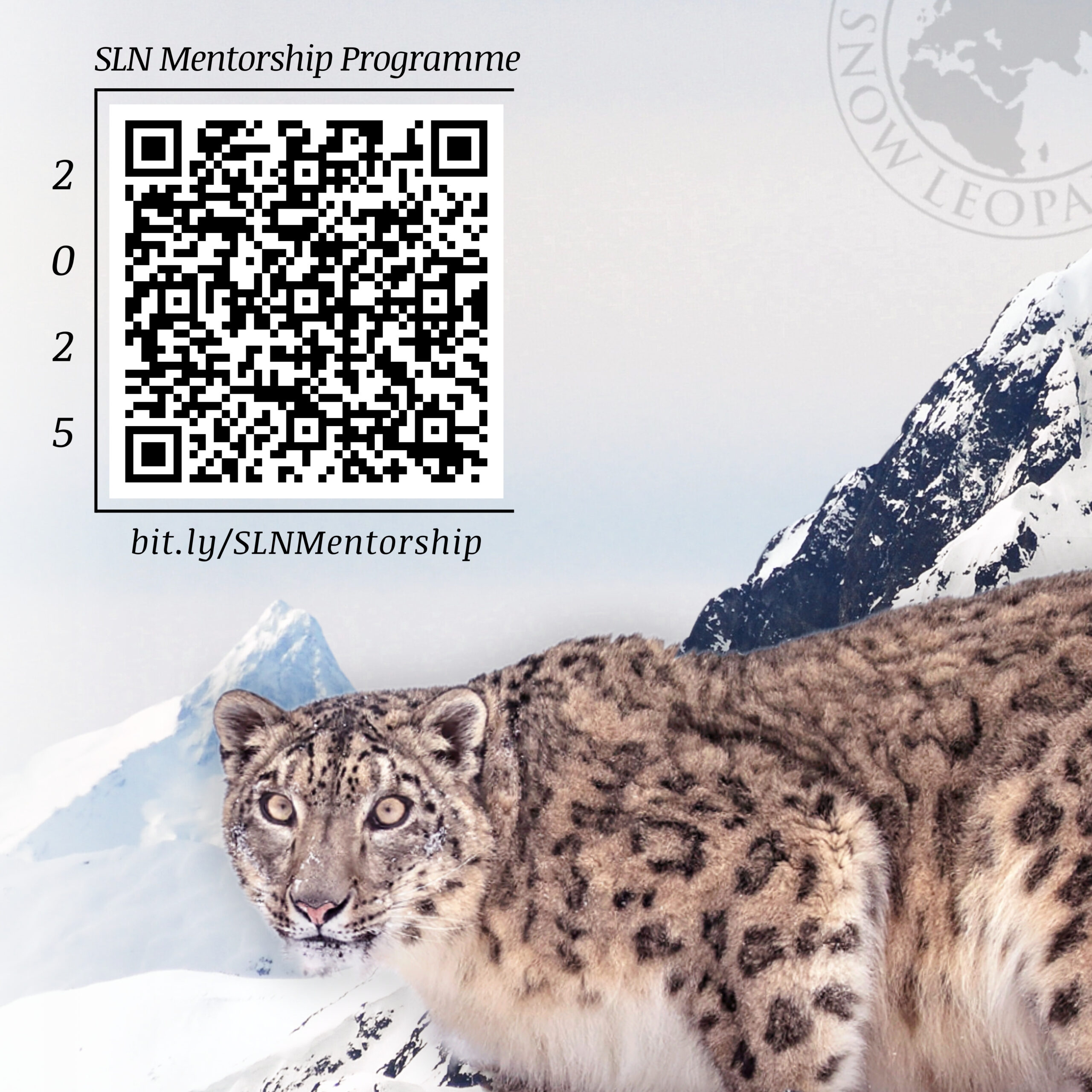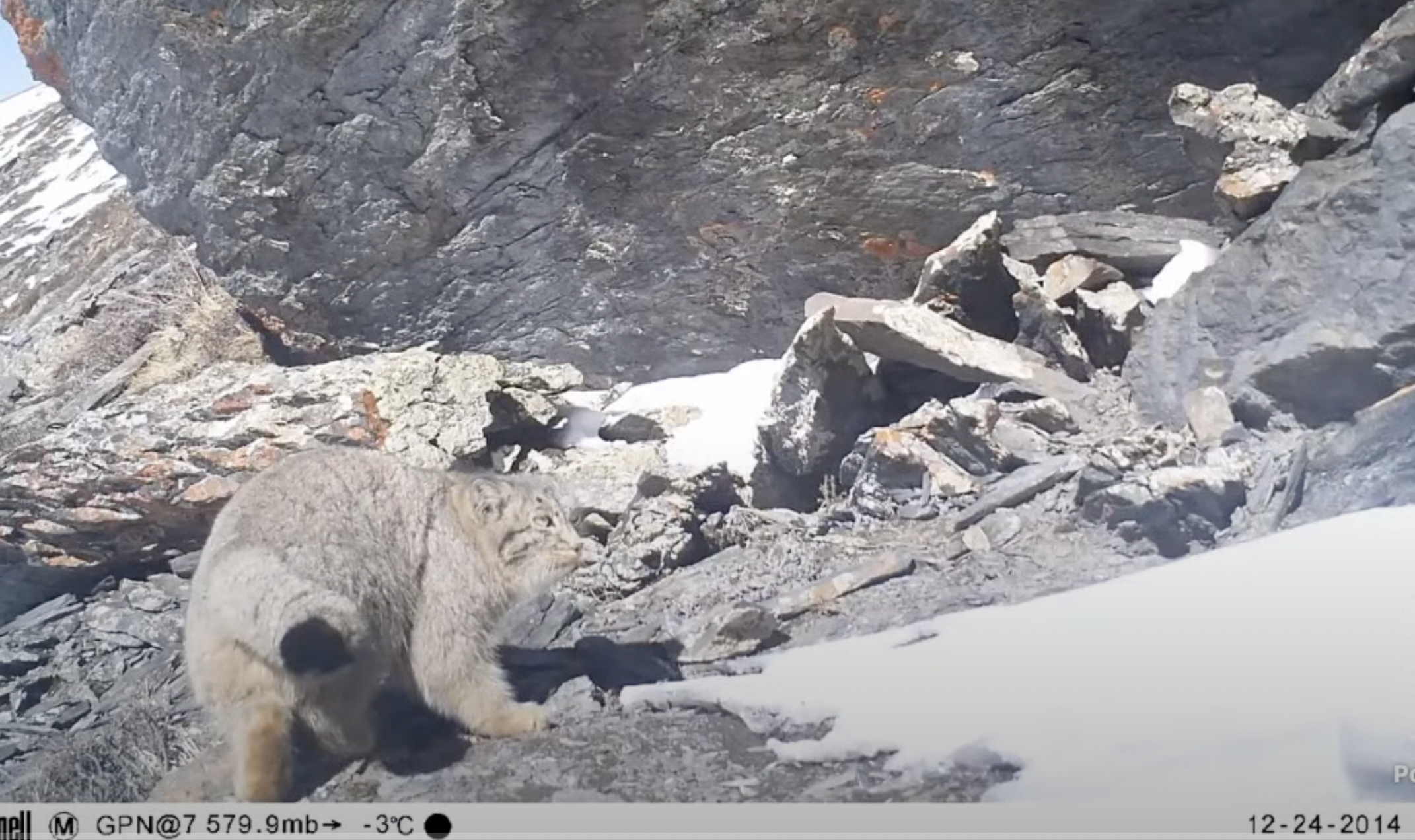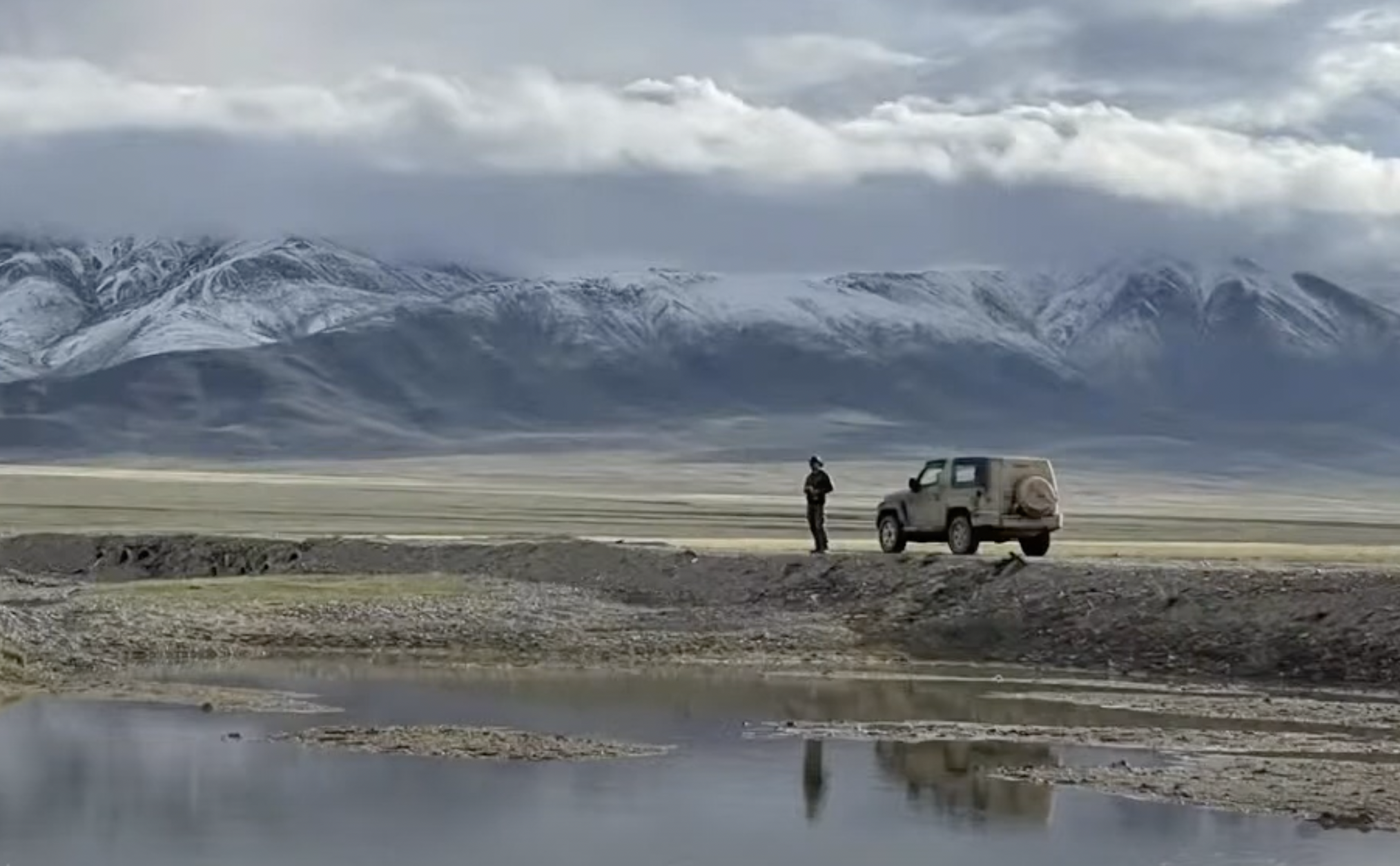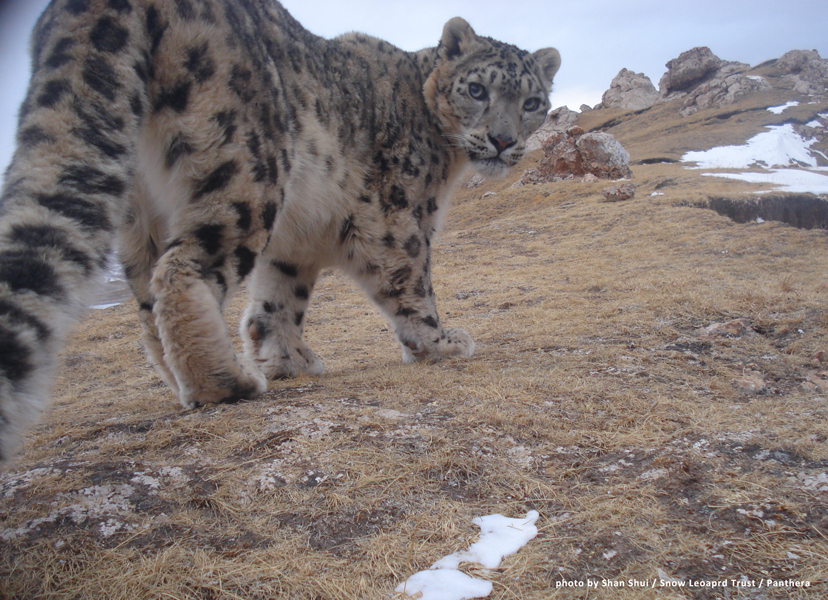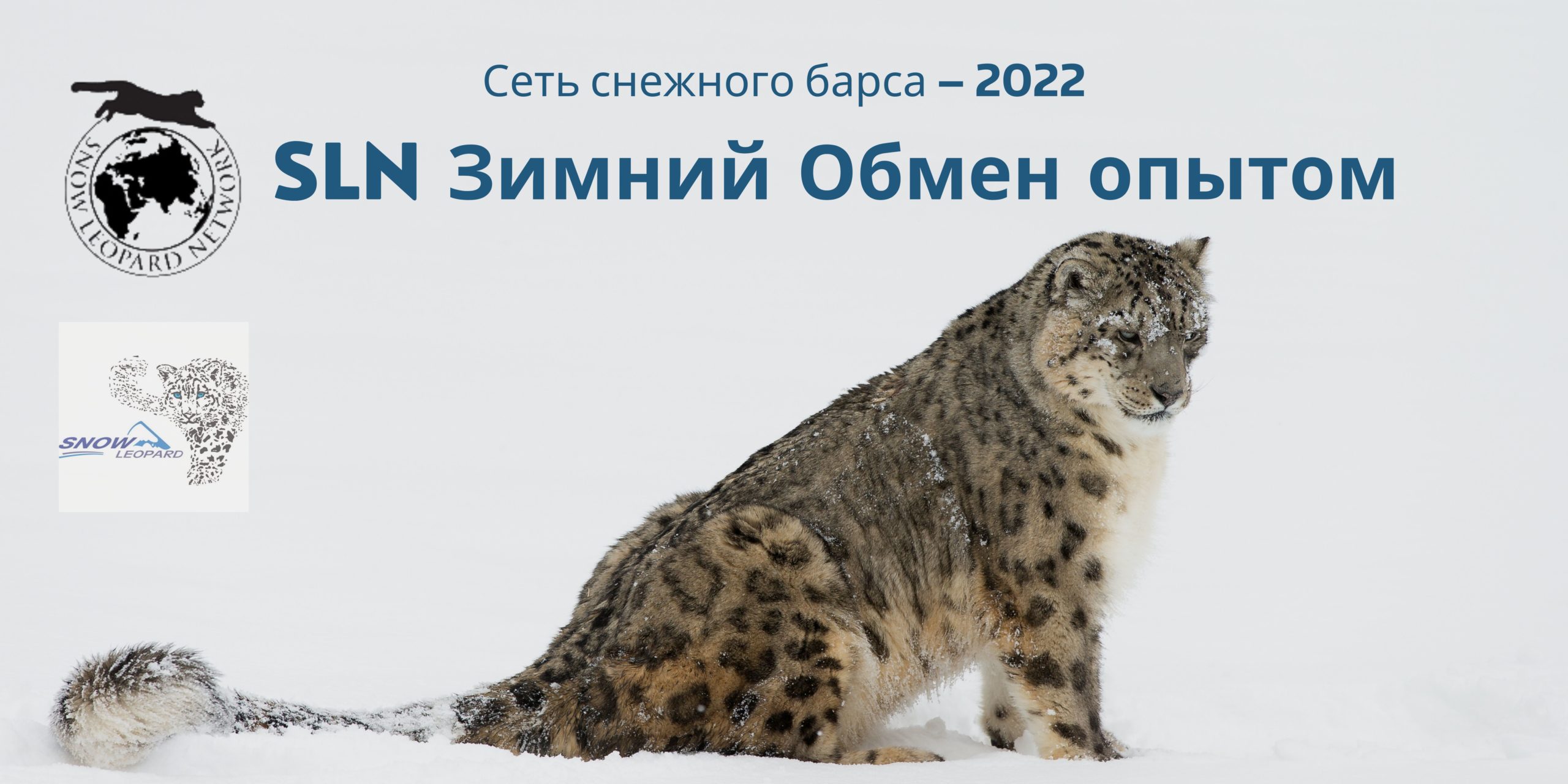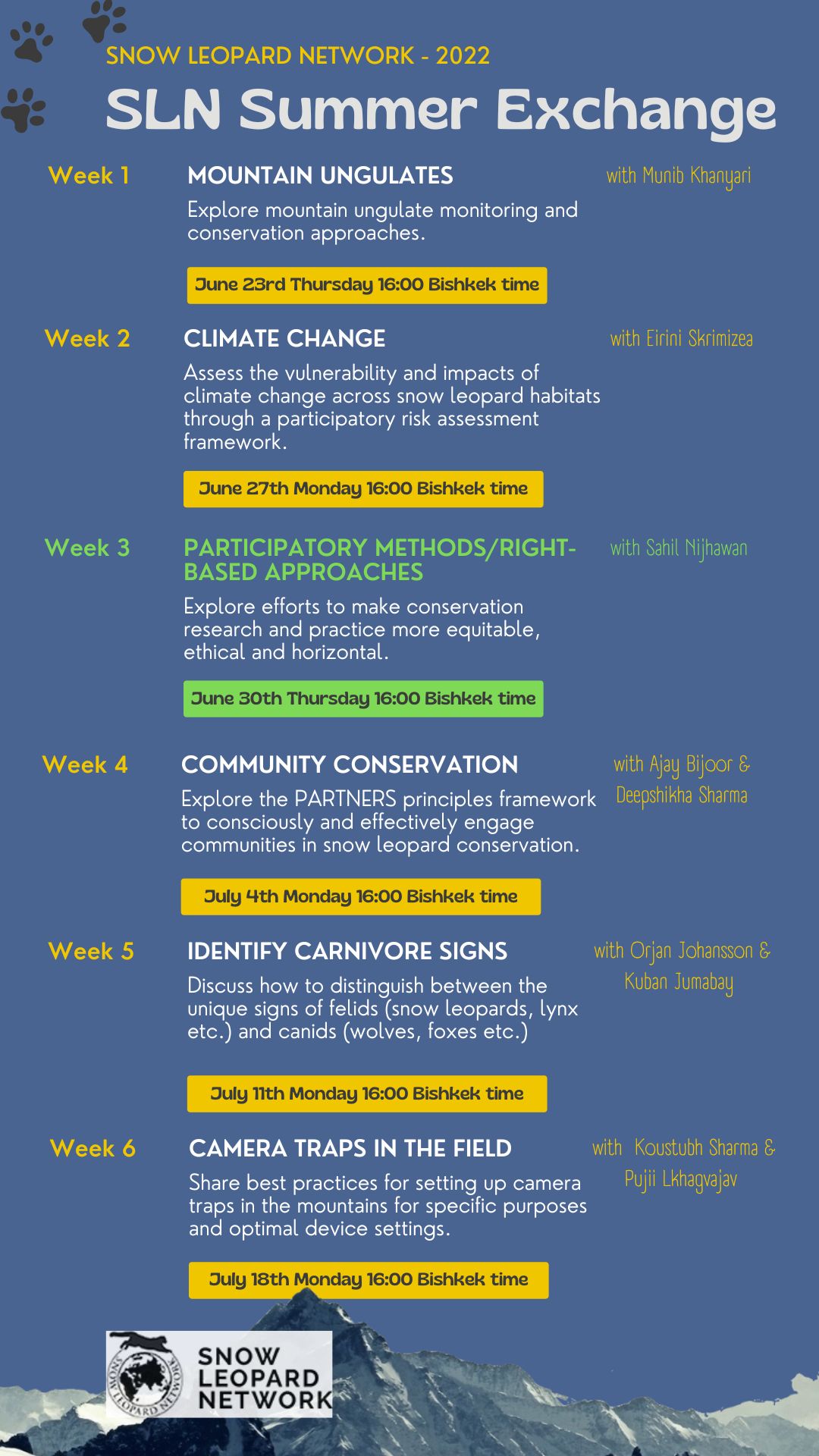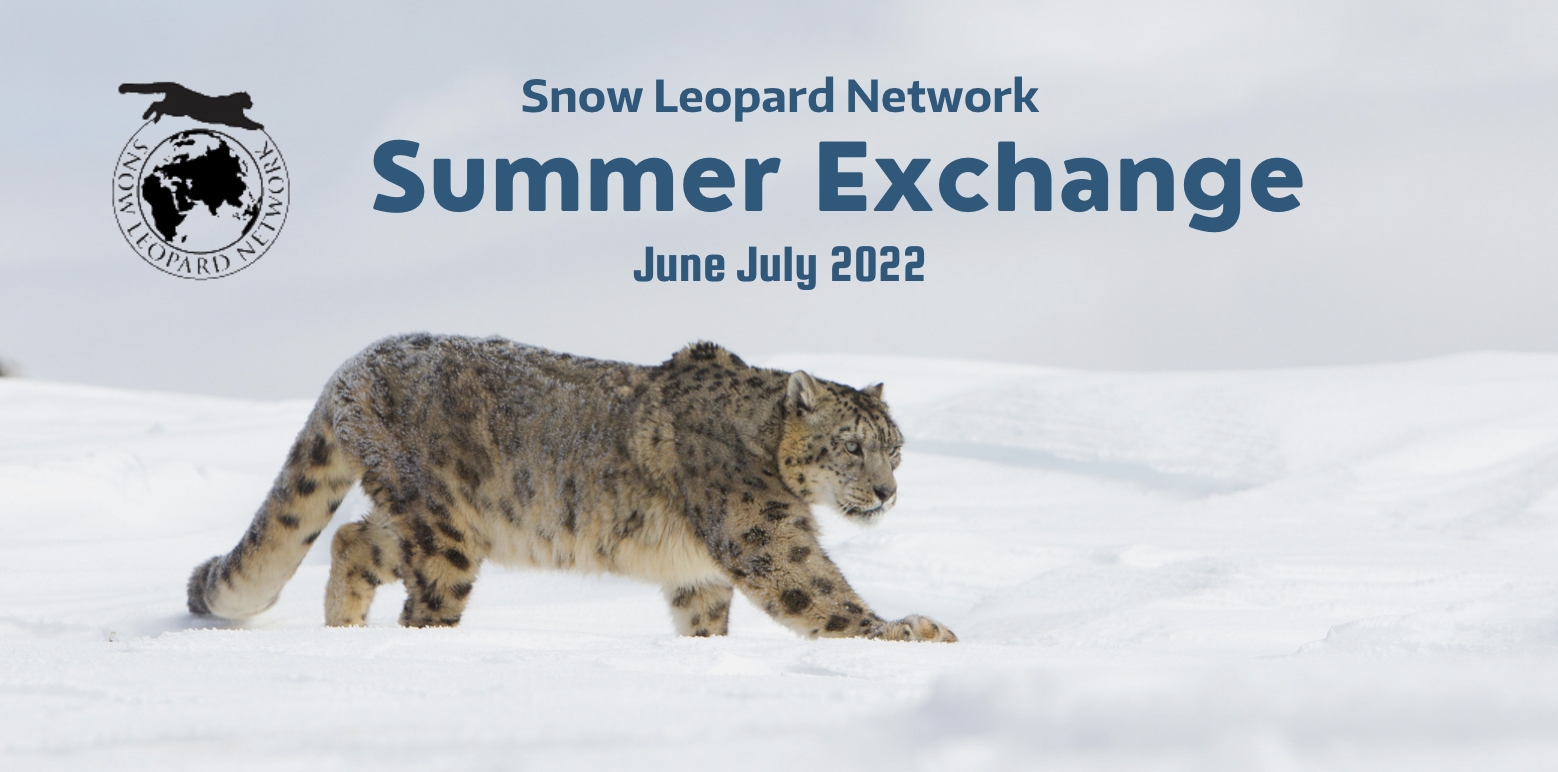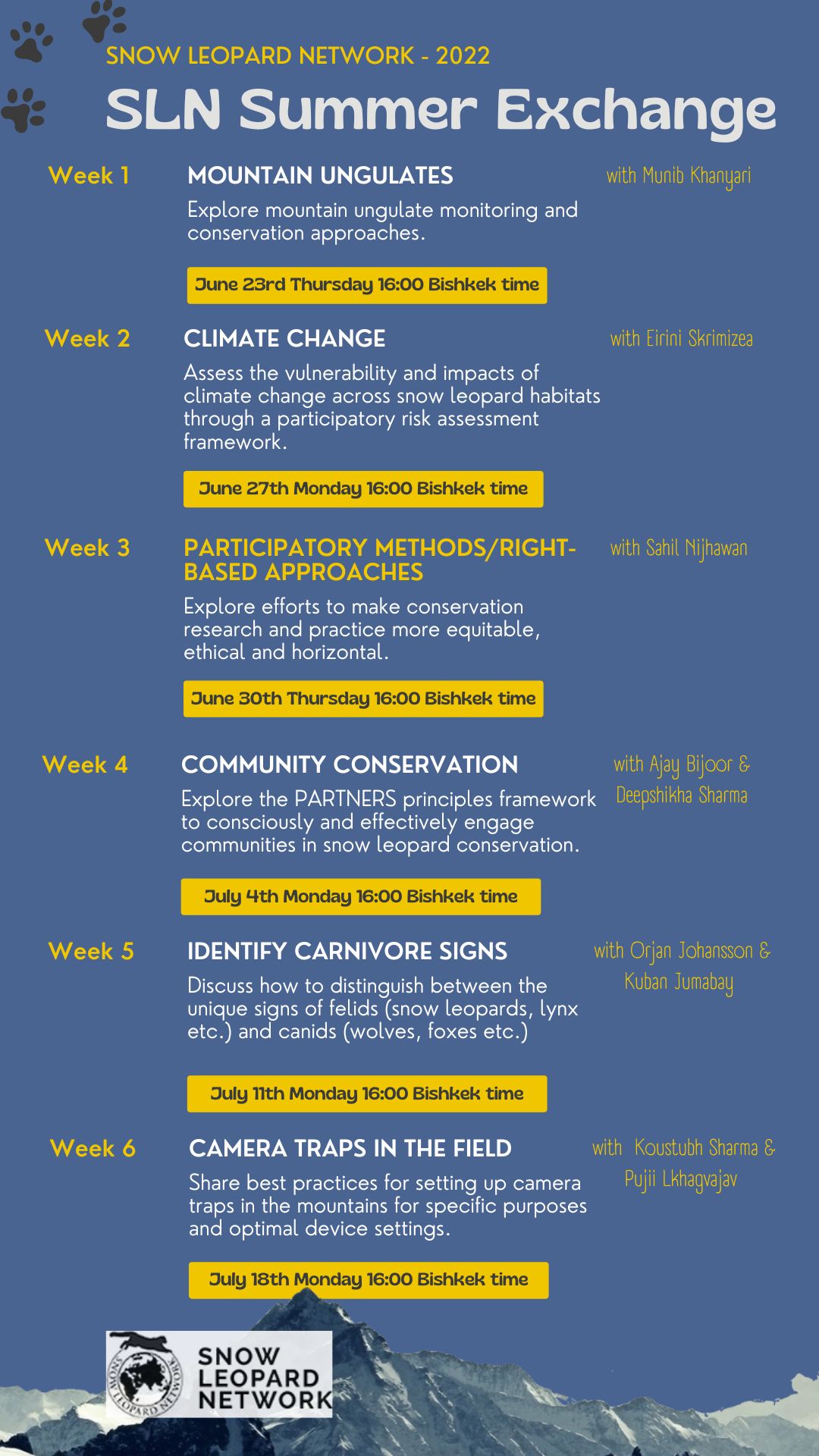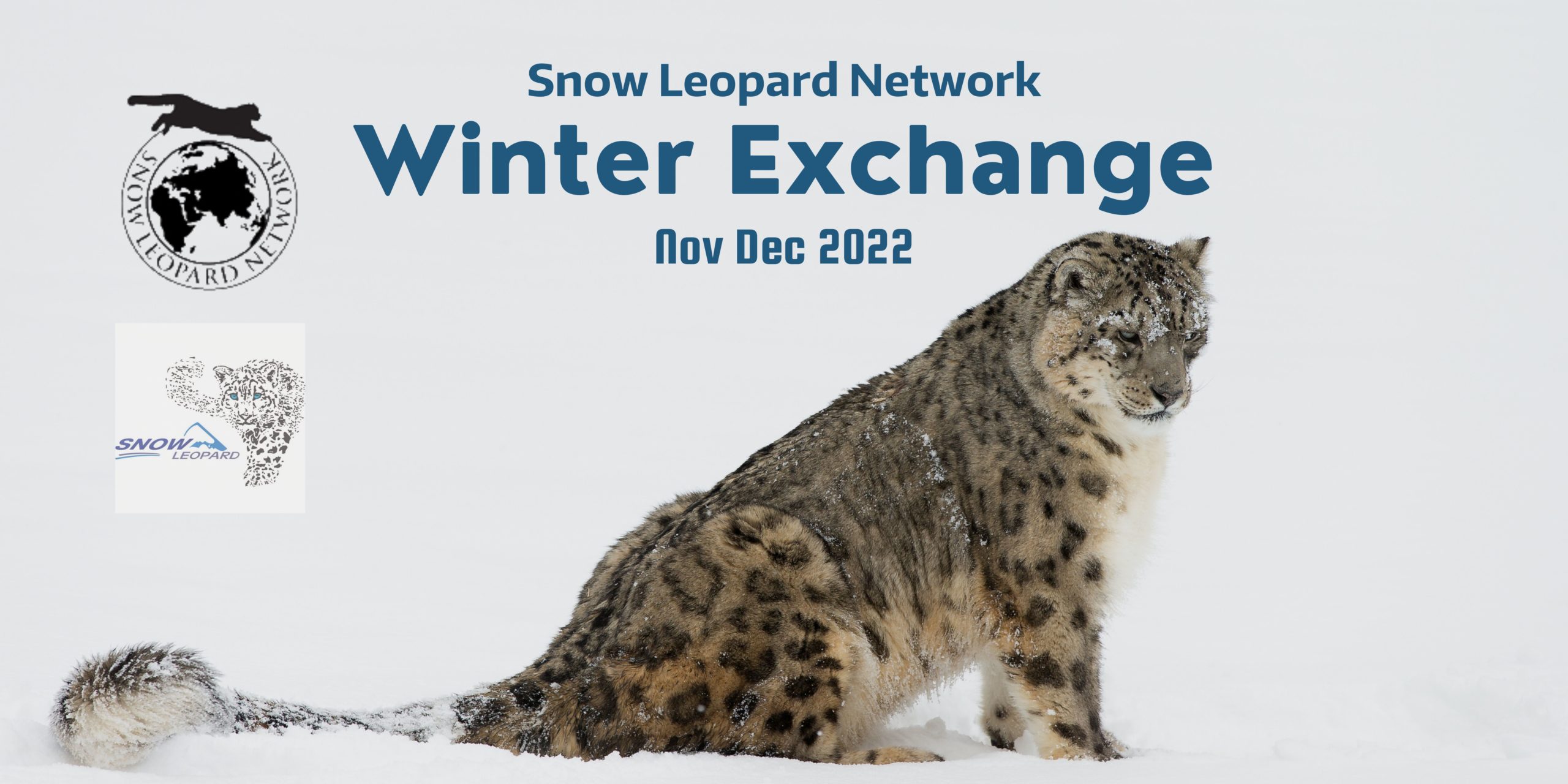
Welcome to the Snow Leopard Network’s Winter Exchange. The aim of the SLN Winter Exchange is to bring snow leopard researchers and conservations practitioners together from across the world and share the latest developments in snow leopard conservation programming and research. Our resource persons will share updates from different High Asia settings: we will travel and meet teams working in Tajikistan, Nepal, China, Russia and Kyrgyzstan. Each brief and inspiring talk will be followed by a discussion period where we explore ideas in further depth, drawing on the group’s experience and knowledge. All sessions will be offered with simultaneous translation in English and Russian.
Our Resource Team are individual and organisational members from the Snow Leopard Network, drawing on their extensive knowledge and experience. We are very appreciative of our Resource Team finding time to join us in this effort and we look forward to members taking advantage of this exceptional opportunity. Please do share the information with anyone interested as these sessions are FREE and open to all. We thank the Global Snow Leopard and Ecosystem Protection Program (GSLEP) with their support in making this event possible. Sign up HERE.
Structure: 60–90 min Sessions (30min guest speaker presentation followed by a 30 min discussion). During the talk feel free to write questions in the chat section that we can take forward during the discussion section. All sessions will be offered in English and Russian with simultaneous interpretation.
Week 1: Snow leopards & Tajikistan
14:00 Bishkek time, Monday, 21st November, 2022
Mountains cover more than 90% of Tajikistan. The country’s mountain regions are home to the snow leopard, Marco Polo sheep, Tajik markhor, urial sheep and Asiatic ibex. Tajikistan is developing a climate-smart National Action Plan for the conservation of the snow leopard (Panthera uncia) and its ecosystems in Tajikistan for 2023-2025 supported by UNEPs Vanishing Treasures programme in Tajikistan. Join Ismoil Kholmatov from the Association of Nature Conservation Organizations of Tajikistan (ANCOT) who will share updates of this ongoing effort.
Week 2: Snow leopards & Nepal
14:00 Bishkek time, Monday, 28th November, 2022
Nepal has a long history in snow leopard conservation. Rinzin Phunjok Lama from the Third Pole Conservancy will share updates of the teams ongoing snow leopard population survey in Humla, west Nepal. He will share how community conservation provides the foundation for their monitoring efforts. Rinzin and his colleagues are actively working in partnership with local stakeholders to tackle threats to snow leopards including direct killings, forest fires, illegal logging through a number of livelihood programs (including gathering honey, making traditional clothes, and running ecotourism businesses). Their work includes large scale monitoring of snow leopards and other wildlife. Join us as Rinzin shares the opportunities and challenges of achieving this multi-pronged approach.
Week 3: Snow leopards & China
14:00 Bishkek time, Monday, 5th December, 2022
Qilianshan National Park, extends along the magnificent Qilian Mountains in north-eastern corner of the Tibetan Plateau. The mountains of 52,000 sq.km provide home and future refuges for snow leopard and many other wildlife. When the national park was established in 2016, an ambitious plan was announced to assess snow leopard populations across the entire mountain range. Since 2014, Dr. Yanlin Liu has been working with different teams on the snow leopard assessment in Qilian Mountains. Yanlin is currently the Science Director of the Chinese Felid Conservation Alliance and previously served as director of the snow leopard project for the ShanShui Conservation Center and a Post-Doc in the Chinese Academy of Forest. During this session he will share some of the opportunities and challenges his team is facing. He would love to hear form other SLN members and discuss large scale monitoring strategies.
Week 4: Snow leopards & Russia
14:00 Bishkek time, Monday, 12th December, 2022
Snow leopard habitat in Russia is in the southern most part of the country. Join Alexander Karnaukhov from WWF-Russia as he shares updates on the transboundary monitoring efforts between Russia and Mongolia. He will also discuss approaches for automatising monitoring data collection- discussing the pros and cons of methods such as SMART and Next NextGIS. We encourage SLN members to join the discussion and share approaches that worked in other contexts.
Week 5: Snow leopards & Kyrgyzstan
14:00 Bishkek time, Friday, 16th December, 2022
In 2021, Panthera kick-started a project with a focus in building conservation capacity and partnerships with communities in Osh, Kyrgyzstan. Since June 2021, the project was co-led by two female conservationists, Sabin Snow Leopard grantee Fatima Mannapbekova and CEPF project lead Altynai Adabaeva. Together with the Ilbirs Foundation, they’ve made introductory visits to communities in the Osh Oblast of Kyrgyzstan to establish relationships with local stakeholders and communities. Later, they led a team of surveyors to conduct the preliminary survey work via household interviews. Over 23 days, 639 interviews were conducted in 37 villages. During this SLN session, Altynai and Fatima will share the results of their work, challenges faced, and lessons learned while working in a rarely studied snow leopard habitat.
How to sign up?


